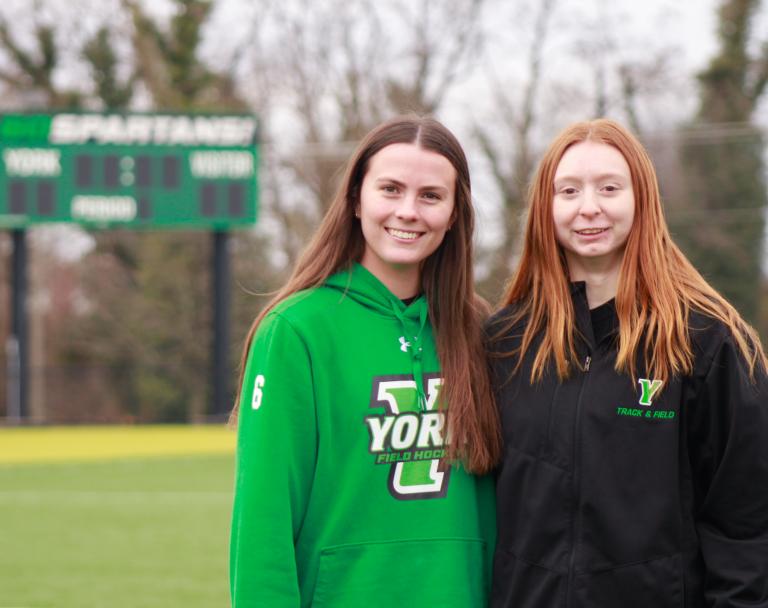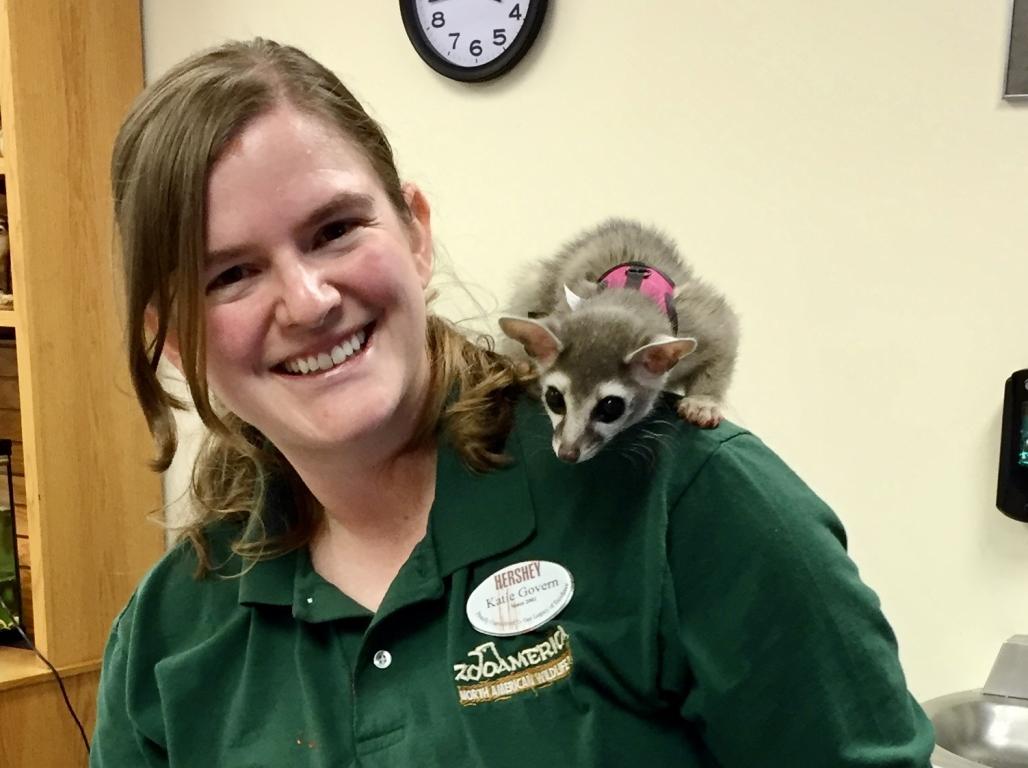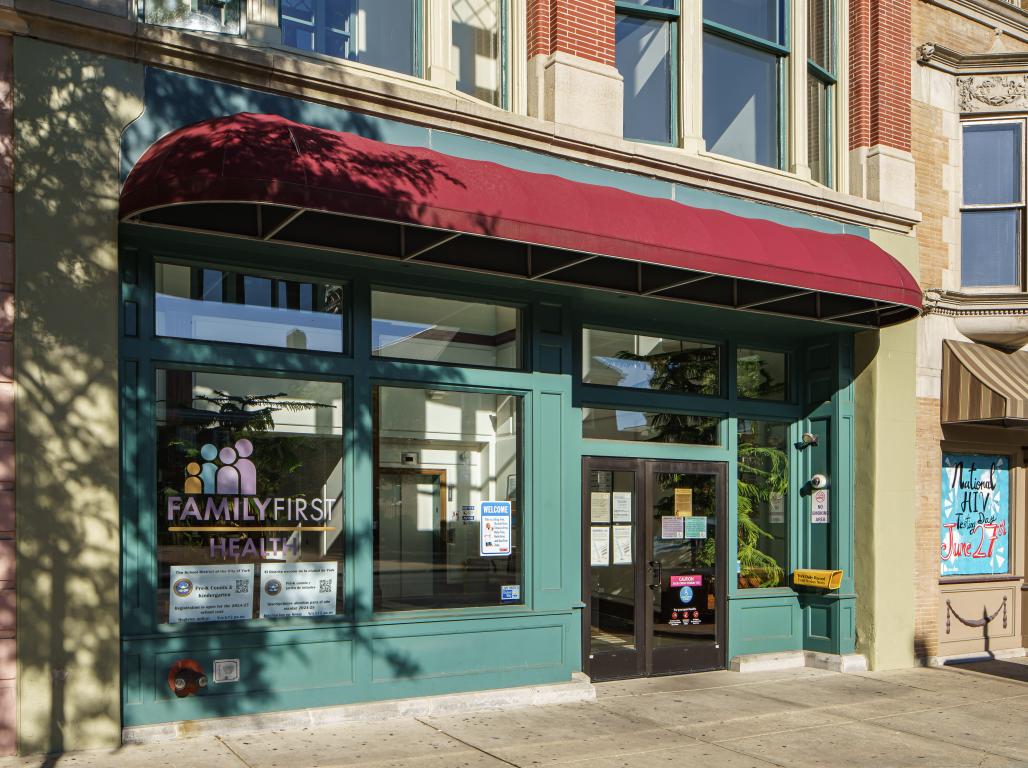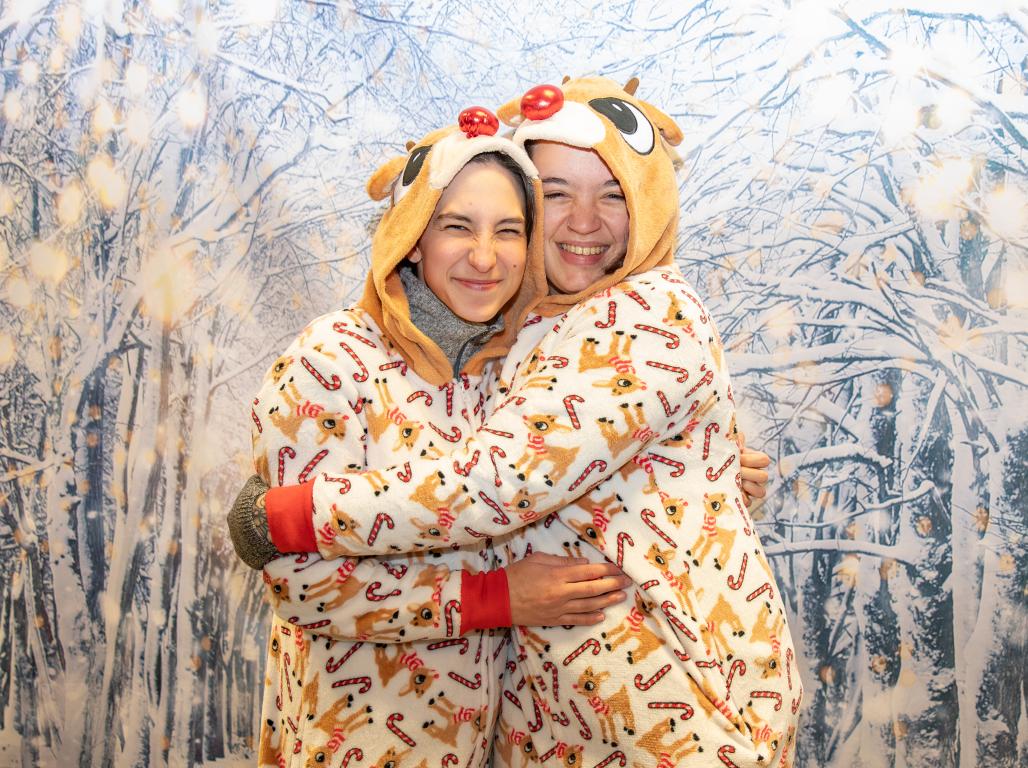Designed for Action: YCP Partners with Local Lacrosse Club

At York College, students aren’t just reading textbooks and listening to lectures. They’re working on community projects, solving real-world problems, and using their education to effect change. In Designed for Action, we meet the students who are making an impact outside of the classroom.
When an athlete prepares for a game, excellent playing skills are only part of the equation. Players also need to know how to self-regulate and be at their best mentally, on and off the field.
That’s what Sport Management major Katie Martino ’24 and self-designed Sport Philanthropy major Isabella Ewing ’25 spent last fall teaching.
In the Fall 2022 Semester, as part of Dr. Molly Sauder’s Sport Behavior Class, Katie and Isabella worked with lacrosse athletes at White Rose Lacrosse Club, ranging from second through seventh grade, and taught them actionable skills they could implement in their game play, including breath control, self-talk, goal-setting techniques, and more.
“It was really fun to get to work with them,” Isabella says.
Laying The Foundation
Each year, Dr. Sauder, who is the Department Chairperson of Sport, Tourism and Hospitality Management, runs Sport Behavior with a different sports organization in the area. This year, with the assistance of Coach Brandon Childs, who owns the club and is also Head Coach of the Men’s Lacrosse team at York College, and Kevin Greene, former Director of Coach and Athlete Development at USA Lacrosse, White Rose was chosen.
But before they could work with the student-athletes, Dr. Sauder’s students first had to learn the skills they would teach the lacrosse players themselves.
“Teaching students the research behind how to ‘bring out the best in other people’ can be a really abstract concept,” Dr. Sauder says. “Our partnership with White Rose Lacrosse and USA Lacrosse allowed students to learn the information, but then have to creatively apply it both through our work ‘day-of’ with athletes in October and through the creation of materials that the athletes and their families could take with them to keep learning.”
“Everyone thinks they have the best way to coach, and in reality, there’s not one best way to coach. But if you can come down and understand your athlete, that is a start,” Isabella explains.
The students were split into groups according to what skill they were teaching. Katie’s group was in charge of teaching breath control, while Isabella was in the communications group, which focused on teaching families how to communicate with their athletes in ways that improve their overall development. Since this was a project-based learning course, Isabella says, the students learned how to research what they were talking about, and then back it up.
“Wherever we work, we’re going to be the new people there, and we’re going to have to prove that we actually know what we’re talking about,” Isabella says. “With evidence-based learning, you’re able to take information and then prove that it’s a reliable source—this is why, and here’s my information.”
With the research they completed, Dr. Sauder’s class was responsible for facilitating activities and creating materials that would help the athletes remember what they learned, and help their families as well as they do the best they can to support their athletes .
“We did a video on how to properly communicate with your athlete, and we pulled parts from imagery and self-talk,” Isabella explains. “We had a questionnaire on how to properly talk to your athlete and ask them questions such as what they think they’ve improved on, and if they met their goals for that game.”
“My group focused on breath control,” Katie says. “We researched how we could put that into a lacrosse drill and not have the athletes get annoyed that we're doing something they see as completely unrelated to lacrosse, so we had to find the best ways to practice it, including activities.”
She also says that they were responsible for making sure the athletes had take-home activities that would help them remember what they’d learned that day.
“While we did the whole activity plan for our day, we also had to create a one-sheet printout that we put in a folder along with all the other groups’ take-home sheets to remind them of what we talked about that day,” she adds.
Preparing For Success
Both Isabella and Katie credit the education they’ve received at YCP for helping them learn the necessary skills they needed to be successful in this course.
Katie cites her first-year Sport in Society course in helping her understand different situations in sports, and also in how to navigate communication with athletes who might have problems at home, which can be difficult.
“We don't see those difficulties after only being there for one day,” Katie says. “We had to go in with the mindset of, ‘Oh, this person might have something going on at home, so that's why they might not be participating.’ I think Sport in Society prepared me for that because we would talk about how different societies view sports. And as an outsider coming in for the day, I wanted to be really careful of that.”
As an Eisenhart and Graham Scholar, Isabella has had the opportunity to complete much project-based learning, something she finds very useful for an assignment like this, she says.
“We do a lot of hands-on work, which solidified why I chose York, and this was very-hands on,” she says. “That's something that I think the Sport and Hospitality majors do well.”
Overall, both Katie and Isabella had a great experience in the class. This course reignited Katie’s love for working with children.
“I could see myself doing something similar, working with kids in a sport setting,” she says. “I have always loved working with kids.”
York College works with Engaged Scholars and Graham Collaborative Innovation Fellows From Day One to help them form their dreams into a personal mission, which is supported with financial and other assistance. They leave York College with a record of achievement that will gain the attention of employers, graduate schools, or others who provide entry into the next step in the extraordinary lives they imagine for themselves.




